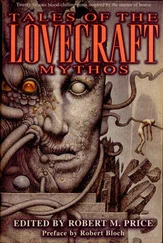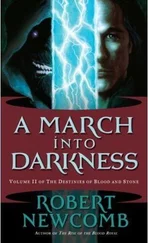Robert Pirsig - Lila. An Inquiry Into Morals
Здесь есть возможность читать онлайн «Robert Pirsig - Lila. An Inquiry Into Morals» весь текст электронной книги совершенно бесплатно (целиком полную версию без сокращений). В некоторых случаях можно слушать аудио, скачать через торрент в формате fb2 и присутствует краткое содержание. Жанр: Современная проза, на английском языке. Описание произведения, (предисловие) а так же отзывы посетителей доступны на портале библиотеки ЛибКат.
- Название:Lila. An Inquiry Into Morals
- Автор:
- Жанр:
- Год:неизвестен
- ISBN:нет данных
- Рейтинг книги:3 / 5. Голосов: 1
-
Избранное:Добавить в избранное
- Отзывы:
-
Ваша оценка:
- 60
- 1
- 2
- 3
- 4
- 5
Lila. An Inquiry Into Morals: краткое содержание, описание и аннотация
Предлагаем к чтению аннотацию, описание, краткое содержание или предисловие (зависит от того, что написал сам автор книги «Lila. An Inquiry Into Morals»). Если вы не нашли необходимую информацию о книге — напишите в комментариях, мы постараемся отыскать её.
Lila. An Inquiry Into Morals — читать онлайн бесплатно полную книгу (весь текст) целиком
Ниже представлен текст книги, разбитый по страницам. Система сохранения места последней прочитанной страницы, позволяет с удобством читать онлайн бесплатно книгу «Lila. An Inquiry Into Morals», без необходимости каждый раз заново искать на чём Вы остановились. Поставьте закладку, и сможете в любой момент перейти на страницу, на которой закончили чтение.
Интервал:
Закладка:
By the end of the sixties the intellectualism of the twenties found itself in an impossible trap. If it continued to advocate more freedom from Victorian social restraint, all it would get was more Hippies, who were really just carrying its anti-Victorianism to an extreme. If, on the other hand, it advocated more constructive social conformity in opposition to the Hippies, all it would get was more Victorians, in the form of the reactionary right.
This political whip-saw was invincible, and in 1968 it cut down one of the last of the great intellectual liberal leaders of the New Deal period, Hubert Humphrey, the Democratic candidate for president.
I’ve seen enough of this, Humphrey exclaimed at the disastrous 1968 Democratic convention, I’ve seen far too much of it! But he had no explanation for it and no remedy and neither did anyone else. The great intellectual revolution of the first half of the twentieth century, the dream of a Great Society made humane by man’s intellect, was killed, hoist on its own petard of freedom from social restraint.
Phædrus thought that this Hippie revolution could have been almost as much an advance over the intellectual twenties as the twenties had been over the social 1890s, but his analysis showed that this Dynamic sixties revolution made a disastrous mistake that destroyed it before it really got started.
The Hippie rejection of social and intellectual patterns left just two directions to go: toward biological quality and toward Dynamic Quality. The revolutionaries of the sixties thought that since both are antisocial, and since both are anti-intellectual, why then they must both be the same. That was the mistake.
American writing on Zen during this period showed this confusion. Zen was often thought to be a sort of innocent anything goes. If you did anything you pleased, without regard for social restraint, at the exact moment you pleased to do it, that would express your Buddha-nature. To Japanese Zen masters coming to this country this must have seemed really strange. Japanese Zen is attached to social disciplines so meticulous they make the Puritans look almost degenerate.
Back in the fifties and sixties Phædrus had shared this confusion of biological quality and Dynamic Quality, but the Metaphysics of Quality seemed to help clear it up. When biological quality and Dynamic Quality are confused the result isn’t an increase in Dynamic Quality. It’s an extremely destructive form of degeneracy of the sort seen in the Manson murders, the Jonestown madness, and the increase of crime and drug addiction throughout the country. In the early seventies, as people began to see this, they dropped away from the movement, and the Hippie revolution, like the intellectual revolution of the twenties, became a moral rebellion that failed.
Today, it seemed to Phædrus, the overall picture is one of moral movements gone bankrupt. Just as the intellectual revolution undermined social patterns, the Hippies undermined both static and intellectual patterns. Nothing better has been introduced to replace them. The result has been a drop in both social and intellectual quality. In the United States the national intelligence level shown in SAT scores has gone down. Organized crime has grown more powerful and more sinister. Urban ghettos have grown larger and more dangerous. The end of the twentieth century in America seems to be an intellectual, social, and economic rust-belt, a whole society that has given up on Dynamic improvement and is slowly trying to slip back to Victorianism, the last static ratchet-latch. More Dynamic foreign cultures are overtaking it and actually invading it because it’s now incapable of competing. What’s coming out of the urban slums, where old Victorian social moral codes are almost completely destroyed, isn’t any new paradise the revolutionaries hoped for, but a reversion to rule by terror, violence and gang death — the old biological might-makes-right morality of prehistoric brigandage that primitive societies were set up to overcome.
Phædrus looked at the glass window across the hotel room and at the darkness beyond it. The question that seemed to grow in his mind every time he came back to New York was: is this city going to survive or isn’t it? It’s always had social problems, and it’s always survived them, and somehow it’s always been strengthened by them, and maybe that will happen again. But this time the odds didn’t look bright. He remembered the title Rudyard Kipling had used for Calcutta back in Victorian times, The City of Dreadful Night. That’s what this city was becoming.
It was the most Dynamic place on earth, but the price of being Dynamic is instability. Any Dynamic situation is vulnerable to attrition and corruption and even to complete collapse. When you take steps forward into the unknown you always risk being smashed by that unknown. There had always been a battle here between intense legions of the most Dynamic and most moral on one side, confronting the most biological and least moral on the other; between A-class people and F-class people. The Bs and Cs were out in the other boroughs and suburbs, doing static things. But now, here, the Fs seemed to be winning.
From the hotel window, looking out across the park, it seemed as if you could see from the north, from the ghetto areas there, a dreadful night, an eclipse of social patterns by invading unchecked biological patterns, closing in and gradually putting New York into a sleep from which it might never recover. It isn’t a war of races or of cultures. It’s war of society against patterns of reason and patterns of biology that have been set loose by the mistakes of this century.
The most sinister thing about the fall of the Roman Empire was that the people who conquered it never understood that they had done so. They paralyzed the patterns of Roman social structure to a point where everybody just forgot what that structure was. Taxes became uncollectible. Armies composed of hired barbarians stopped receiving pay. Everything just lapsed. The patterns of civilization were forgotten, and a Dark Age settled in.
Phædrus wasn’t sure but he seemed to detect a peculiar gentleness here on the streets now that he didn’t remember from the past. It was an ominous gentleness found in old and corrupt cultures, the gentleness one hears in Neapolitan street songs and in old Mexican cancidnes. It comes not from an absence of violence but from an excess of it. Live and let live. Avoid trouble. It was the gentleness of someone who has given up fighting openly because it is too dangerous to do so. He had the sickening feeling that something like the fall of the Roman Empire was beginning to happen here. What was so sinister now about New York was that the patterns that built it no longer seemed understood — those who understand the patterns are no longer in control of those who don’t.
What seemed to allow this deadly night to descend was that the intellectual patterns that were supposed to be in charge of things, that should comprehend the threat and lead the fight against it, were paralyzed. They were paralyzed, not by any external force, but by their own internal construction, which made them unable to comprehend what was happening.
It was like watching the spider waiting while the wasp gets ready to attack it. The spider can leave any time to save its life but it doesn’t do so. It just waits there, paralyzed by some internal pattern of responses that make it unable to recognize its own danger. The wasp plants its eggs in the spider’s body and the spider lives on while the wasp larvae slowly eat it and destroy it.
Phædrus thought that a Metaphysics of Quality could be a replacement for the paralyzing intellectual system that is allowing all this destruction to go unchecked. The paralysis of America is a paralysis of moral patterns. Morals can’t function normally because morals have been declared intellectually illegal by the subject-object metaphysics that dominates present social thought. These subject-object patterns were never designed for the job of governing society. They’re not doing it. When they’re put in the position of controlling society, of setting moral standards and declaring values, and when they then declare that there are no values and no morals, the result isn’t progress. The result is social catastrophe.
Читать дальшеИнтервал:
Закладка:
Похожие книги на «Lila. An Inquiry Into Morals»
Представляем Вашему вниманию похожие книги на «Lila. An Inquiry Into Morals» списком для выбора. Мы отобрали схожую по названию и смыслу литературу в надежде предоставить читателям больше вариантов отыскать новые, интересные, ещё непрочитанные произведения.
Обсуждение, отзывы о книге «Lila. An Inquiry Into Morals» и просто собственные мнения читателей. Оставьте ваши комментарии, напишите, что Вы думаете о произведении, его смысле или главных героях. Укажите что конкретно понравилось, а что нет, и почему Вы так считаете.











